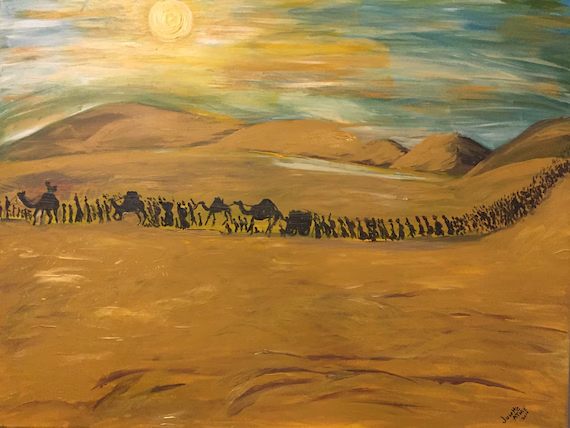The Death of John
While Jesus was teaching in the towns and villages around Lake Galilee, his cousin John, who had become known as John the Baptist, was talking to the people about God and baptizing them.
He also spoke against King Herod Antipas because the King had married his brother's wife. Herodias. This, said John, was wrong.
King Herod had John arrested and thrown into prison. Queen Herodias wanted the King to kill John, but Herod knew John was a good and holy man, and was afraid to have him executed.
When King Herod had a birthday, he gave a feast for his lords, captains and other important people. Salome, the young and beautiful daughter of Queen Herodias, danced to entertain the guests.
The King was so delighted with her performance, he promised. 'Ask me for anything you wish. You may even have half my kingdom.
Queen Herodias saw her chance. She whispered to her daughter. 'Ask him for the head of John the Baptist to be brought to you on a dish. The girl repeated this to the King.
Herod was dismayed. He didn't want to kill John. but he had made his promise in front of all his guests and he couldn't break it. He ordered his guards to go to the prison, and to cut off John's head.
It was then brought in on a dish and presented to Salome who gave it to her mother. When John's friends heard what had happened, they took away his body and buried it.
Then they went to tell the news to Jesus, who was very sad at the death of his cousin.












Comments
Post a Comment